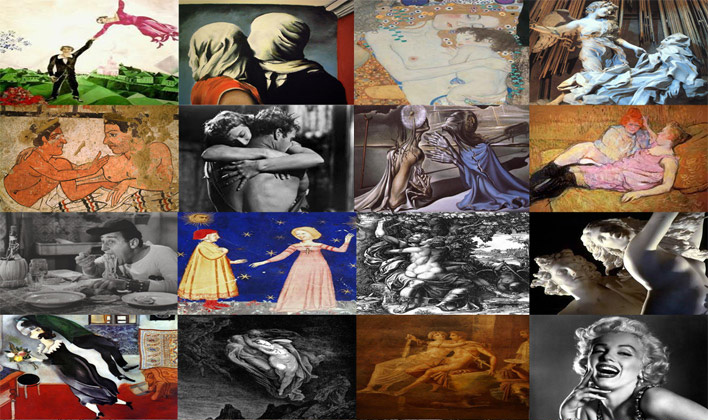The Name-of-the-Father: patterns of desire in Alberto Moravia's "L'uomo che guarda"
Abstract
This essay aims to investigate Alberto Moravia’s novel L’uomo che guarda (1985) through a psychoanalytic understanding of desire, specifically employed as an interpretive device. By primarily speaking of desire from a Lacanian perspective, I will focus in particular on Massimo Recalcati’s further elaborations of Lacan's theory, with special regard to his notion of 'hyper-modernity'. At the same time, by attempting a structural analysis of the novel, I will interpret desire as a drive that shape and organize the plot, following Peter Brook’s seminal work Reading for the plot.
My reading allows therefore to see desire as an interpretive device reassessing Moravia's novel in both thematic and structural terms. More specifically, the analysis of the main characters in the light of this perspective will enable a shift in interpretation from the level of the plot to a deeper inquiry into issues of social and generational conflict, thereby enabling a new reading of the novel in the light of the ideological, political and intellectual turmoil occurred in Italy between the Sixties and the Seventies.
Downloads
References
Brooks, Peter, Reading for the plot, Oxford, Clarendon, 1984, trad. it. Trame, Torino, Einaudi, 2004.
David, Michel, La psicoanalisi nella cultura italiana, Torino, Boringhieri, 1966.
di Ciaccia, Antonio, Recalcati, Massimo, Jacques Lacan, Milano, Mondadori, 2000.
Lacan, Jacques, “Due note sul bambino”, La psicoanalisi, 1, 1987: 22-3.
Id., “Nota sul padre e sull’universalismo”, La psicoanalisi, 33, 2003: 9.
Lipovetsky, Gilles, Le temps hypermoderns, Paris, Grasset, 2004.
McCaffery, Larry, “An Interview with David Foster Wallace”, Review of Contemporary Fiction, 13.2, 1993: 127-50.
Moravia, Alberto, Intervista sullo scrittore scomodo, Ed. Nello Ajello, Roma-Bari, Laterza, 1978.
Id., Impegno controvoglia, Milano, Bompiani, 1980.
Id., L’uomo che guarda, Milano, Mondadori, 1985.
Id., Io e il mio tempo, Padova, Garzanti, 1988.
Id., “Tra Freud e Don Chisciotte”, la Repubblica, 10.12.1990, http://ricerca.repubblica.it/repubblica/archivio/repubblica/1990/11/10/tra-freud-don-chisciotte.html, online.
Recalcati, Massimo, L’uomo senza inconscio, Milano, Raffaello Cortina Editore, 2010.
Id., Cosa resta del padre?, Milano, Raffaello Cortina Editore, 2011.
Id., Ritratti di desiderio, Milano, Raffaello Cortina Editore, 2012.
Siciliano, Enzo, Alberto Moravia: vita parole e idee di un romanziere, Milano, Bompiani, 1982.
Wu Ming 1, “Noi dobbiamo essere i genitori”, Carmilla on line, 2008, http://www.carmillaonline.com/archives/2008/10/002804.html, online (ultimo accesso 16/03/2013).
Id., “Note sul potere pappone in Italia: Berlusconi non è il padre”, GIAP, 2010, http://www.wumingfoundation.com/giap/?p=1675, online (ultimo accesso 16/03/2013).
Copyright Notice
You are free to copy, distribute and transmit the work, and to adapt the work. You must attribute the work in the manner specified by the author or licensor (but not in any way that suggests that they endorse you or your use of the work).









